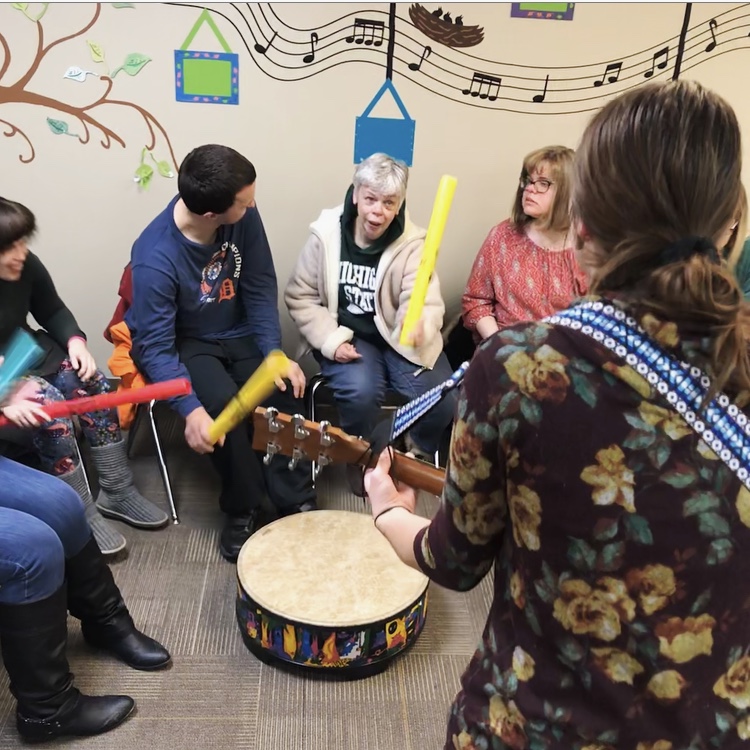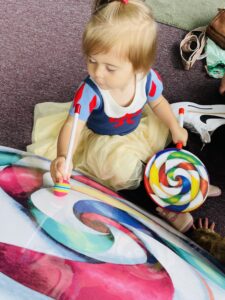Music and Autism

For individuals with diagnoses on the autism spectrum, music therapy provides a unique variety of music experiences in an intentional and developmentally appropriate manner to effect changes in behavior and facilitate development of skills.
Music therapy may include the use of behavioral, biomedical, developmental, educational, humanistic, adaptive music instruction, and/or other models. Music therapy enhances one’s quality of life, involving relationships between a qualified music therapist and individual; between one individual and another; between the individual and his/her family; and between the music and the participants. These relationships are structured and adapted through the elements of music to create a positive environment and set the occasion for successful growth.
The literature reports that most individuals with autism respond positively to music (DeMyer, 1974; Edgerton, 1994; Euper, 1968; Snell, 1996; Thaut, 1992).
- People with diagnoses on the autism spectrum often show a heightened interest and response to music, making it an excellent therapeutic tool to work with them.
- Music is a very basic human response, spanning all degrees of ability/disability. Music therapists are able to meet clients at their own levels and allow them to grow from there. The malleability of music makes it a medium that can be adapted to meet the needs of each individual.
- Music is motivating and enjoyable.
- Music can promote relatedness, relaxation, learning, and self-expression.
- Music therapy addresses multiple developmental issues simultaneously.
- Music therapy can provide success-oriented opportunities for achievement and mastery.
- The structure and sensory input inherent in music help to establish response and role expectations, positive interactions, and organization.
Families of those with diagnoses on the autism spectrum may reap many benefits from music therapy. An individual’s growth through music therapy may improve the quality of life for the whole family. If the client’s behavior is improved, there may be less stress or strain on other family members. In addition, with an increase in skills, the client may become more independent and aware and more able to interact and communicate with others. Music therapy can provide additional opportunities for positive interaction and building relationships among family members and the client. New music-related leisure options among family members may be explored, while providing an acceptable emotional outlet. Greater family cohesiveness, support, and coping skills may be achieved through shared, equal music making during sessions or in the home environment. Participation in music therapy often allows family members to see their loved one in a “different light,” to witness their relative’s areas of strength and aptitude, perhaps seeing or hearing novel responses in this setting that they have not noted elsewhere. Music therapy may provide hope for the future and belief in the individual’s abilities.
Is There Research to Support Music Therapy for Individuals with Diagnoses on the Autism Spectrum?
Through peer-reviewed journals inside the profession such as Music Therapy, the Journal of Music Therapy, Music Therapy Perspectives, and extensive articles in journals outside the profession, AMTA has promoted much research exploring the benefits of music therapy with individuals with diagnoses on the autism spectrum. A research bibliography of select articles and publications is available from AMTA for those interested in specific research examples.
(This blog was adapted from the AMTA Fact Sheet: http://www.musictherapy.org/assets/1/7/MT_Autism_2012.pdf)




